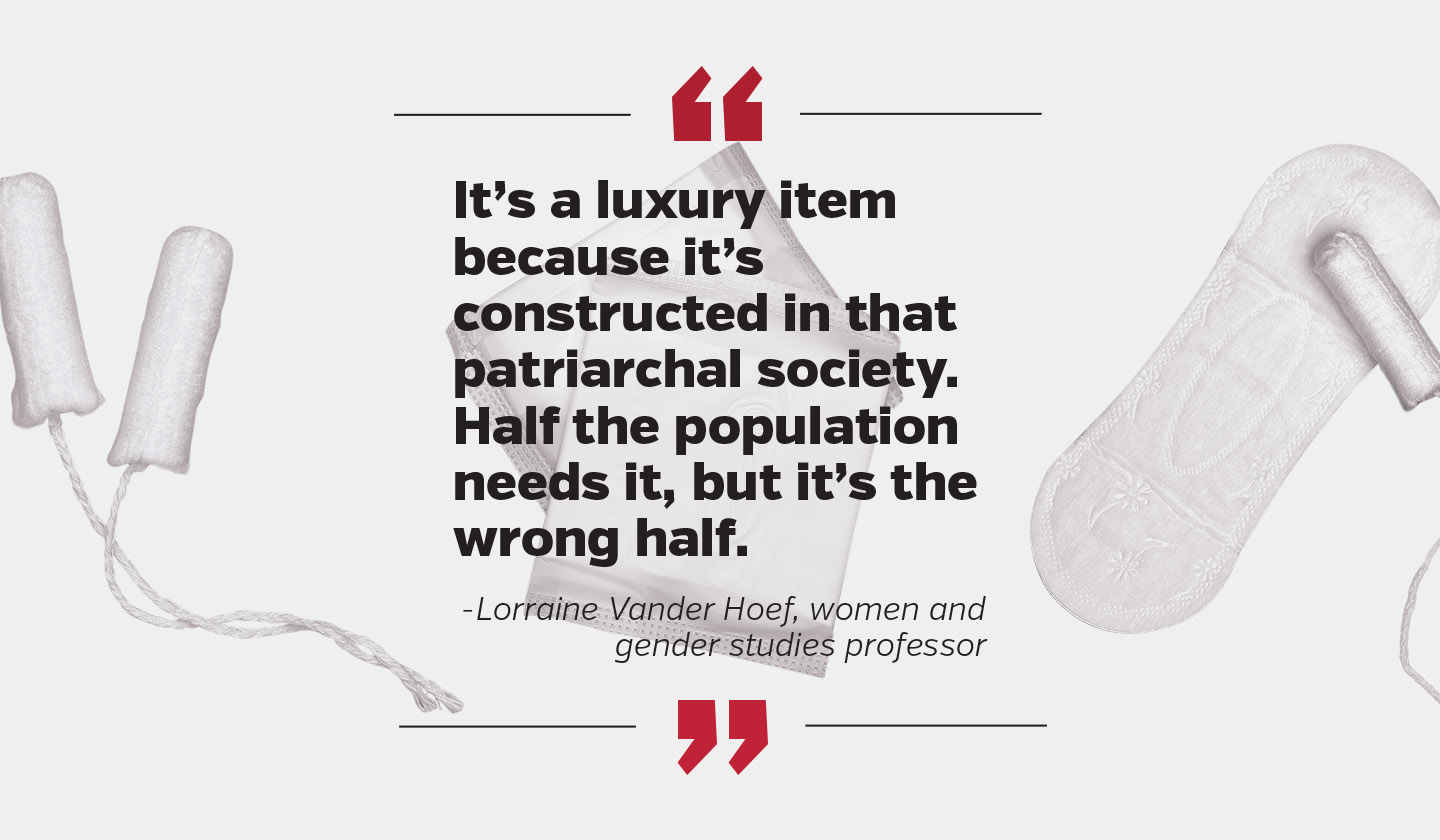Targeted initiatives to address period poverty struggles gain momentum

Groups across Canada advocate for the avaliability of period products across university campuses and workplaces.
One in five menstruating Canadians may not be able to afford period products in the near future, according to a survey conducted on behalf of the Federal Government.
This is an example of period poverty, or “the lack of access to safe and hygienic menstrual products during monthly periods and inaccessibility to basic sanitation services or facilities as well as menstrual hygiene education,” according to the National Library of Medicine.
Within the last couple of years, initiatives surrounding period poverty have gained momentum across Canada.
At Laurier, Hayley Newman-Petryshen has played a large part in the fight for equality.
“Often we think about the material deprivation of actual pads and tampons, but [period poverty] can also refer to having to take time off work because you have endometriosis,” said Newman-Petryshen, who is a Laurier alum, co-director at Monthly Dignity, and a project coordinator with Free Periods Canada.
Both nonprofits aim to address the causes and consequences of period poverty and advance menstrual equity for those across Canada.
The stigma around conditions such as endometriosis, when experiencing period poverty, can lead to individuals feeling embarrassment surrounding possible leaking and the risk of health problems and infection, explained Newman-Petryshen.
Often we think about the material deprevation of actual pads and tampons, but [period poverty] can also refer to having to take time off work.
Hayley Newman-Petryshen
Many are forced to use other products like socks, newspaper, and toilet paper as makeshift pads, she said.
The lack of period products on the Laurier campus during Newman-Petryshen’s undergrad led to her feeling stranded.
“At the beginning of my second year in 2018 I found myself getting stuck multiple times on campus without products and there was nowhere to find them,” said Newman-Petryshen.
Inspired to make a change, Newman-Petryshen reached out to Laurier Students’ Public Interest Research Group (LSPIRG).
“We started brainstorming awareness ideas, but our first move involved applying for the Student Life Levy, which doesn’t exist on the Waterloo campus anymore, for a pilot project,” said Newman-Petryshen.
“There ensued six years of advocacy that eventually led to a more permanent solution through facilities.”
Currently, through the LSPIRG-led campaign, 14 washrooms across the school’s Waterloo, Kitchener, and Brantford campuses provide free menstrual products.
While significant advancements have been made when addressing period poverty, there’s still progress to be made.
“The current government program, the Menstrual Equity Pilot Fund, only provides products through the food banks,” which excludes a significant portion of those who experience period poverty, said Newman-Petryshen.
“There is a huge need to think about more creative ways that we can access those more hidden and hard-to-reach populations.”


